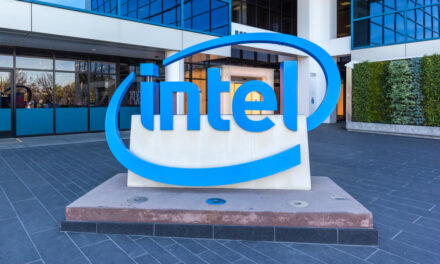Stocks are ending mostly lower as small companies fall again, even as gains by a handful of big companies push the Dow Jones Industrial Average to an all-time high.
Retailers, airlines and automakers fell Tuesday, dragging broad market indexes lower on Tuesday.
Amazon dragged other retailers lower after saying it would raise its minimum wage for all U.S. workers to $15 an hour, putting pressure on other companies to follow suit.
Stitch Fix, an online clothing seller, plunged 35 percent after its user totals fell short of analysts’ forecasts.
KEEPING SCORE: The S&P 500 index fell a point to 2,923 at closing time. The Dow Jones Industrial Average added 123 points, or 0.5 percent, to 26,774, powered by big gains in Intel and Boeing. The Nasdaq composite fell 38 points, or 0.5 percent, to 8,000. Three stocks fell for every two that rose on the New York Stock Exchange.
BIG TROUBLE IN SMALL CAPS: The Russell 2000 index of smaller-company stocks fell 18 points, or 1.1 percent, to 1,654, and it’s on track for its lowest close since July 30. Earlier this year investors bought up smaller companies as tensions with trading partners flared up. Smaller companies tend to be less exposed to trade conflicts since they do more business in the U.S. than larger companies.
With a new trade deal with Canada sealed over the weekend, investors aren’t as worried about the trade situation right now and are shifting money out of smaller companies and into large multinationals. In the last three months the S&P 500 has climbed more than 7 percent and the Russell is almost flat.
Quincy Krosby, chief market strategist at Prudential Financial, said investors are feeling better about exporters and multinationals because the dollar has weakened slightly this summer.
“That helps the large exporters. It obviously makes them more competitive,” she said. “China announced that they were now stabilizing their currency. You began to see the dollar pull back and you saw a comeback in emerging markets.”
RIPPED STITCHING: Stitch Fix’s revenue and active client totals fell short of Wall Street’s targets, and the stock plummeted 33.8 percent $29.56. Stitch Fix had almost tripled since its IPO in November.
Retailers stumbled after internet retailer Amazon said it will raise the minimum wage for all of its U.S. workers to $15 an hour in November. Amazon also said it will advocate for an increase in the federal minimum wage, which is currently $7.25 an hour.
While increased wages give consumers more money to spend, Krosby said other retailers might feel pressure to raise their pay as well, and that could cut into their profits.
Amazon lost 1.6 percent to $1,971.53 while Under Armour fell 3.7 percent to $20.35. Nike lost 1.3 percent to $83.39 and Gap sank 4.3 percent to $27.48.
CAR SALES: Automakers fell as they reported their monthly sales. GM dipped 2.3 percent to $33.41 and Ford fell 0.7 percent to $9.27, but Toyota added 0.8 percent to $125.83. Auto parts retailer AutoZone fell 0.8 percent to $764.26.
U.S. automakers had done on Monday as the trade deal with Canada appeared to reduce the chances that the industry will be harmed by tariffs on imported cars. The pact offers protection to Canada if the U.S. does impose tariffs.
FLAT SODA: Pepsi fell 1.3 percent to $109.30 after it said the stronger dollar will have a bigger effect on its earnings this year. The company is now forecasting a profit of about $5.65 per share in 2018, down from an earlier estimate of $5.70 a share.
TROUBLE ON THE TARMAC: Airlines fell after Delta’s projections for the third quarter disappointed Wall Street. Delta gave up 3.4 percent to $54.66 while American fell 1.5 percent to $39.03.
ITALY’S SPENDING: Italy’s leaders refused to budge from new spending plans that have been spooking investors, pushing the eurozone’s third-largest economy on a collision course with its EU partners. Deputy Prime Minister Luigi Di Maio said Tuesday that the government won’t change its plan to increase its deficit to 2.4 percent of GDP. Eurozone say that would skirt the rules of good fiscal housekeeping shared by the 19 nations using the euro currency.
Italy’s FTSE MIB fell 0.2 percent after a string of losses last week. However Italian government bond prices continued to fall, a sign investors are concerned about the country’s debts. Germany’s DAX lost 0.4 percent and the CAC 40 in France dropped 0.7 percent. Britain’s FTSE 100 fell 0.3 percent.
Separately, the credit ratings agency Moody’s warned that Europe remains highly vulnerable to another economic downturn despite all its fire-fighting efforts over the past few years.
COMMODITIES: Oil prices declined slightly after reaching four-year highs. Benchmark U.S. crude fell 0.1 percent to $75.23 in New York. Brent crude, used to price international oils, slipped 0.2 percent to $84.80 a barrel in London.
Wholesale gasoline was little changed at $2.13 a gallon and heating oil remained at $2.41 a gallon. Natural gas rose 2.3 percent to $3.17 per 1,000 cubic feet.
Gold jumped 1.3 percent to $1,207 an ounce and silver rose 1.3 percent to $14.69 an ounce. Copper gained 0.7 percent to $2.81 a pound.
CURRENCIES: The dollar fell to 113.78 yen from 113.99 yen. The euro fell to $1.1546 from $1.1575.
BONDS: Bond prices edged higher. The yield on the 10-year Treasury note fell to 3.07 percent from 3.08 percent.
ASIA: Hong Kong’s Hang Seng tumbled 2.4 percent after it reopened following a national holiday. South Korea’s Kospi lost 1.3 percent and the benchmark Nikkei 225 in Tokyo added 0.1 percent.
© The Associated Press. All rights reserved.




